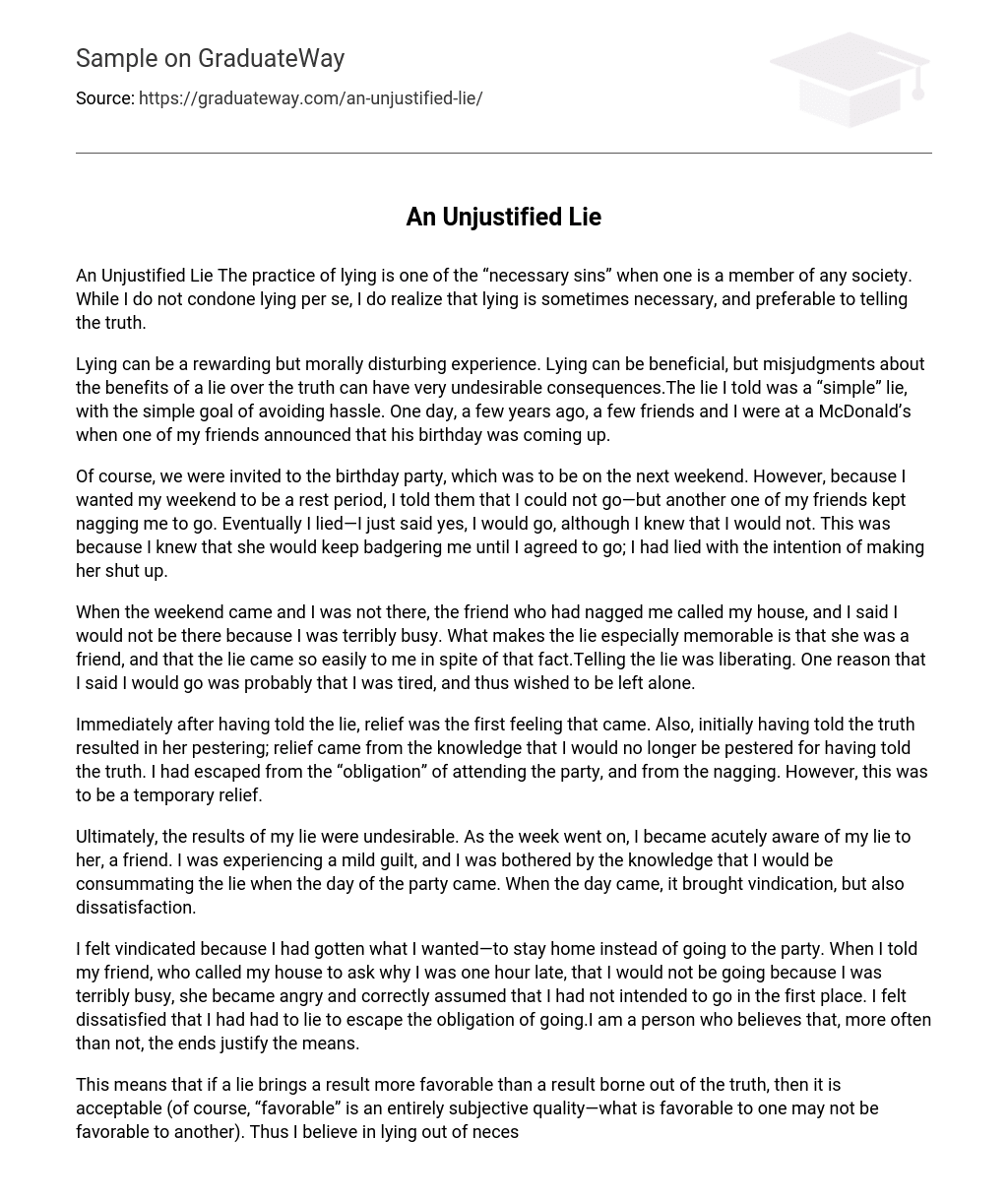The practice of lying is one of the “necessary sins” when one is a member of any society. While I do not condone lying per se, I do realize that lying is sometimes necessary, and preferable to telling the truth.
Lying can be a rewarding but morally disturbing experience. Lying can be beneficial, but misjudgments about the benefits of a lie over the truth can have very undesirable consequences.The lie I told was a “simple” lie, with the simple goal of avoiding hassle. One day, a few years ago, a few friends and I were at a McDonald’s when one of my friends announced that his birthday was coming up.
Of course, we were invited to the birthday party, which was to be on the next weekend. However, because I wanted my weekend to be a rest period, I told them that I could not go—but another one of my friends kept nagging me to go. Eventually I lied—I just said yes, I would go, although I knew that I would not. This was because I knew that she would keep badgering me until I agreed to go; I had lied with the intention of making her shut up.
When the weekend came and I was not there, the friend who had nagged me called my house, and I said I would not be there because I was terribly busy. What makes the lie especially memorable is that she was a friend, and that the lie came so easily to me in spite of that fact.Telling the lie was liberating. One reason that I said I would go was probably that I was tired, and thus wished to be left alone.
Immediately after having told the lie, relief was the first feeling that came. Also, initially having told the truth resulted in her pestering; relief came from the knowledge that I would no longer be pestered for having told the truth. I had escaped from the “obligation” of attending the party, and from the nagging. However, this was to be a temporary relief.
Ultimately, the results of my lie were undesirable. As the week went on, I became acutely aware of my lie to her, a friend. I was experiencing a mild guilt, and I was bothered by the knowledge that I would be consummating the lie when the day of the party came. When the day came, it brought vindication, but also dissatisfaction.
I felt vindicated because I had gotten what I wanted—to stay home instead of going to the party. When I told my friend, who called my house to ask why I was one hour late, that I would not be going because I was terribly busy, she became angry and correctly assumed that I had not intended to go in the first place. I felt dissatisfied that I had had to lie to escape the obligation of going.I am a person who believes that, more often than not, the ends justify the means.
This means that if a lie brings a result more favorable than a result borne out of the truth, then it is acceptable (of course, “favorable” is an entirely subjective quality—what is favorable to one may not be favorable to another). Thus I believe in lying out of necessity. This was not the case, however, with the situation described above. Although it almost seems to be a trivial matter, the lie is memorable because it resulted in unnecessary trouble. All things considered, the lie brought more trouble than the truth would have.





